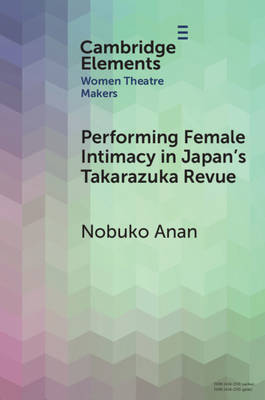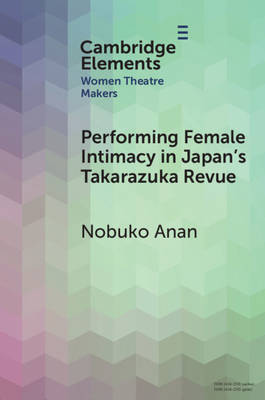
- Afhalen na 1 uur in een winkel met voorraad
- Gratis thuislevering in België vanaf € 30
- Ruim aanbod met 7 miljoen producten
- Afhalen na 1 uur in een winkel met voorraad
- Gratis thuislevering in België vanaf € 30
- Ruim aanbod met 7 miljoen producten
Zoeken
Omschrijving
Japan's Takarazuka Revue is arguably the most commercially successful all-female theatre company in the world. Renowned for its glamour-laden staging of musicals and revues, the company's signature shows are heterosexual Western romances where women play both male and female roles. Since its audience consists almost entirely of women, Takarazuka creates a space for queer intimacy between performers and ardent female fans. This Element analyses the recent experimental show, The Poe Clan, directed by Koike Shūichirō, which portrays a male homoerotic relationship, argued as a façade for a queer, kin-like relationship between women. It also explores works by the female director Ueda Kumiko, which depict an anti-capitalist shared commons for female intimacy. These shows exhibit resistant girls' aesthetics, expressed in the company's two-dimensional performance style.
Specificaties
Betrokkenen
- Auteur(s):
- Uitgeverij:
Inhoud
- Aantal bladzijden:
- 68
- Taal:
- Engels
- Reeks:
Eigenschappen
- Productcode (EAN):
- 9781009554985
- Verschijningsdatum:
- 28/08/2025
- Uitvoering:
- Paperback
- Formaat:
- Trade paperback (VS)
- Afmetingen:
- 152 mm x 229 mm
- Gewicht:
- 104 g

Alleen bij Standaard Boekhandel
+ 48 punten op je klantenkaart van Standaard Boekhandel
Beoordelingen
We publiceren alleen reviews die voldoen aan de voorwaarden voor reviews. Bekijk onze voorwaarden voor reviews.








